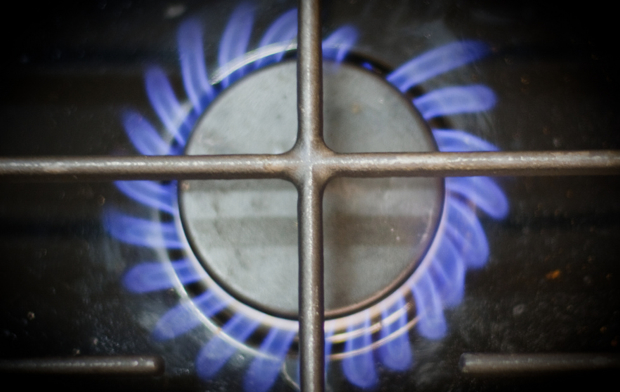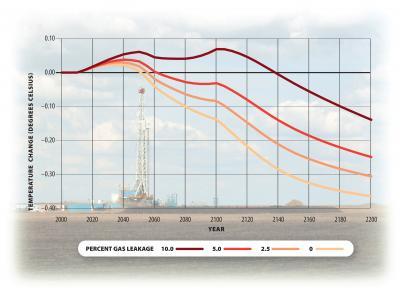Natural gas might burn much cleaner than coal, but getting it has its problems: leaky pipes. And those leaks spray gasses that are worse for the climate than carbon.
Natural gas is a hot energy commodity right now, with new drilling techniques, low prices, a big domestic

supply in the U.S., and the support of people like T. Boone Pickens making it increasingly likely that the stuff will displace some of our reliance on coal and oil. But this may not be a good thing. A new study claims that a switch from coal to natural gas won't do much to quell climate change, despite many fewer emissions when you burn it. The culprit: methane leaks.
It's true that burning natural gas releases fewer greenhouse gas emissions than burning coal, but methane--a potent greenhouse gas--sometimes leaks from natural gas operations. According to a computer simulation study from the National Center for Atmospheric Research (NCAR), a partial global shift from coal to natural gas would still accelerate climate change through 2050 without methane leaks. If there are significant methane leaks, that acceleration could last until 2140. Preventing problems is a daunting task for a growing industry that has to contend with leaks from pipelines, wellheads, and more.

NCAR's study is just the latest to warn of natural gas's shortcomings. A recent Cornell study also pointed out the methane leak problem--and estimated the total methane loss range of the shale gas industry to range between 3.6% and 7.9%.
And then there is the water contamination issue. In one Wyoming town located near a drilling site, oil compounds were found in 89% of all drinking wells that were tested. Methane and 2-butoxyethanol phosphate (a fire retardant and plasticizer) were also discovered in some of the wells. That doesn't make climate change worse, but it makes it pretty hard to live.
It has long been clear that natural gas is not the panacea to our energy woes. But the latest warnings about methane leaks should remind us that natural gas may not much better than the dirtiest energy sources (like coal) available today.
No comments:
Post a Comment